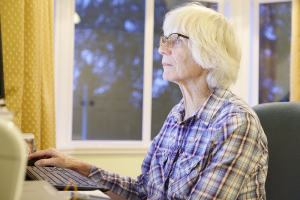Tips to Help You Become a Champion Caregiver for Elderly Parents
 If someone were providing care services for you, how would you want that caregiver/care receiver relationship to look? What qualities would shift that degree of care from ordinary to extraordinary?
If someone were providing care services for you, how would you want that caregiver/care receiver relationship to look? What qualities would shift that degree of care from ordinary to extraordinary?
Taking care of an older loved one at home is a noble and selfless commitment. It’s never a responsibility that should be taken lightly, or taken on halfheartedly. These tips make it possible to become not just a fantastic caregiver, but a care champion who empowers an older adult to thrive.
Foster independence. No one wants to feel as if they’re no longer self-sufficient, or that someone is coming in and taking over. Encourage and motivate the senior to do what they are able to do safely and comfortably on their own, providing whatever support is necessary along the way.
Practice empathy. It’s a helpful exercise to routinely put yourself in the senior’s shoes and consider how you would like to be treated if roles were reversed. This may mean setting your own personal feelings aside to better understand those of the other person.
Be creative. Think outside of the box for ideas to brighten every day. For instance, declare Mondays to be “Milkshake Mondays,” experimenting with making and sampling new flavors together. If the senior loves dogs, invite a pet therapist over or spend an afternoon at the local humane society. Have a movie marathon day featuring all of the senior’s favorite films. The ideas are limitless!
Let Responsive Home Care’s trained and experienced care experts assist with additional ideas and help with care needs in the home. Call us at (954) 486-6440 to request a free in-home consultation.




